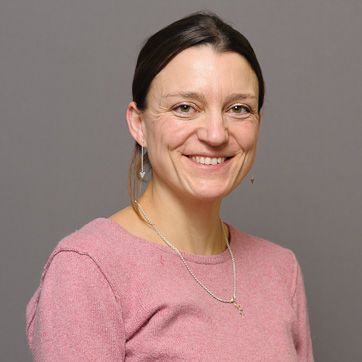Jude Mossop

Jude Mossop
Senior Research Midwife
I joined NDWRH in 2013 after 12 years working as a community midwife in Oxford City.
Patient safety has been the driving force behind my career as a clinical and research midwife:
My own experience of clinical work in both hospital and the community confirmed an urgent need for improvement in the detection of ill maternity patients, so I entered research midwifery to work on the Pregnancy Physiology Pattern Prediction Study (4P), led by Dr. Peter Watkinson from the Nuffield Department of Clinical Neurosciences in the Kadoorie Centre for Critical Care Research and Education.
The 4P study is an observational cohort study with the aim of creating an evidence-based, maternity specific early warning score by establishing a database of normal values for 5 vital signs.
The hope is to improve rates of detection and escalation of deteriorating maternity patients through evidence-based thresholds that take into account physiological changes throughout pregnancy, as to date none exist.
The 4P data will eventually be used as thresholds for escalation on the other patient safety related study I work on, SEND (System for Electronic Notification and Documentation), which is an electronic vital sign recording and escalation system already successfully in use in the adult setting of the John Radcliffe hospital.
As part of SEND, I have been involved in extensive human factors work such as audit of accuracy of use of existing paper charts, ethnographic observation of midwives using them, direct observations, interviews with system users and interface user testing in order to create a device that will have high user acceptability.
From October 2019, I will be undertaking a Post Graduate Certificate in Patient Safety at the University of Oxford in order to help consolidate my knowledge of Quality Improvement Theory.
I am the lead midwife on the OpTIMUM whooping cough vaccine study, which is looking at the best time to give the vaccine in terms of best protection for the baby.
I am also the lead midwife on the PregCal study, which is looking at serum and stool bio markers to predict disease severity in pregnant women with inflammatory bowel disease and rheumatoid arthritis.
In addition to this, I also work on a number of NIHR Portfolio studies such as INGR1D and PULSE.
Recent publications
-
Pregnancy physiology pattern prediction study (4P study): protocol of an observational cohort study collecting vital sign information to inform the development of an accurate centile-based obstetric early warning score
Journal article
Kumar F. et al, (2017), BMJ Open, 7, e016034 - e016034

